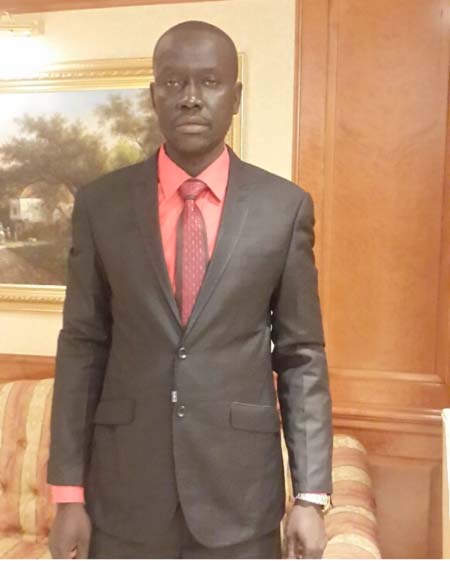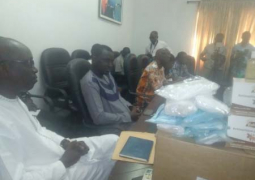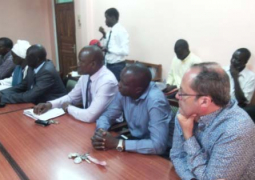
Radville
Farm Limited finance and operations manager Sulayman Mboge has outlined
constraints and challenges faced during the implementation of the out-growers
programme, a World Bank-funded project.
He
disclosed these during the recent visit of the National Assembly members to
Radville Farm activities located at the airport grounds.
The
NAMs recently embarked on visits to all World Bank-funded projects to access
their performance, challenges, constraints, shortfalls, achievements and to
carve the way forward for improvements.
According
to Mr Mboge, the NAMs’ visit was for them to see what Radville Farm is doing in
the implementation of the out-growers programme.
He
said Radville Farm has succeeded in whatever aspect of implementation of the
project.
Mr
Mboge also said the major challenges faced during the implementation period of
the out-growers programme included tax on all out inputs, cartons, packaging,
chemicals and fertilizers, limitation to labour, limitation to freight space,
logistics of transportation to Dakar, among others.
He
said the World Bank-sponsored project was a matching-grant.
He added that during the course of the
project, Radville Farm limited had registered a lot of success.
According
to Mboge, the major problem with the project is sustainability, as is the case
of most projects in the end.
“We are still looking for more land to work
with people under our out growers programme,” he said.
He
said despites all the success, there are challenges or constraints, which the
public needs to know, particularly the lawmakers.
He
said Radville Farm Ltd has been here for
the past 30 years, but still has some constraints, as they are competing with
other companies from the sister country.
“We
are all selling at the same market, but Senegal has some duty waivers free and
not paying anything on cartons, among others.”
They
have a carton production factory in Senegal; thereby they are not paying any
tax, whereas Gambians buy cartons from that same company and bring to The
Gambia; as a result they pay tax.
He
said Radville Farm is lucky because their parent company in UK is the same
company buying from The Gambia, and also from Senegal.
This
is the only advantage Gambia has over Senegal, and that without that they would
not have succeeded in the project.
Mr Mboge said for the country to grow they
need to focus on agriculture, without which they could not grow.
The
National Assembly should come up with policy and plans to help safeguard the
interest of agricultural companies, so that it would bring more companies into
the country, he added.
According
to Mr Mboge, Gambia is endowed with all the natural resources, but what is left
is encouraging people to come in.
He
commended the First Lady for coming to strengthen the Gambia with the Green
Gambia initiative, and in doing so is encouraging more people to go into
agriculture.
He added that what led many to go in for
agriculture is the market, at the end of the day.
Radvile Farm has many advantages, in the sense
that any amount that the out-growers produce they would buy everything from
them.
“We
have a lot of trained agricultural workers, but lack of adequate train
horticultural experts,” he said, adding that there should be a curriculum at
the University of The Gambia, specifically for horticultural production.
He
expressed appreciation about the commitment of the out growers on vegetables
and mango, which has made (WEALMOOR Limited) their parent company in UK to win
the WAITROSE WAY AWARD 2016.
“This
is all due to the involvement of out-growers in our production, and the impact
it has in their social life,” he said.
He said with the farming activities that they
are doing, the farm was awarded the most tax-compliant agro company in The
Gambia by the GRA.




